2004 books: Space Cadet - 4 early SF reads
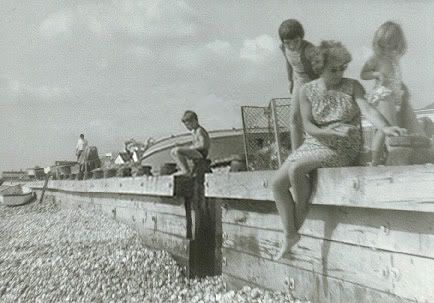
This holiday photo from the summer of 1969 shows I was probably bookish from a young age: I'm avoiding the stony beaches of East Wittering and instead reading Arthur C. Clarke's Islands in the Sky (meanwhile, that's my mother and two sisters nearby getting ready for a dip in the cold North Sea). I can recall sitting in exactly the same place three years later in 1972, age 11, reading Kate Wilhelm's The Killing Thing. The other two SF books I remember reading between those times are Madeleine L'Engle's A Wrinkle in Time and André Norton's The Beast Master. These are the four books I credit with giving me an early enthusiasm for SF, so I recently went back and re-read them...
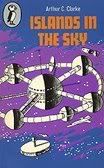
Arthur C. Clarke, Islands in the Sky 1954
This is the first specifically science fictional book I can remember reading, and at the age of twelve I was, probably, precisely the kind of reader Clarke had in mind when he penned Islands in the Sky. Written largely to interest young boys in the possibilities of space exploration, the book's teenage protagonist Roy Malcolm wins a TV aviation quiz and gets to visit a space station in low-Earth orbit. Adventures ensue, including an unexpected trip around the dark side of the moon, and Roy gets back to Earth in one piece. Filled with small lessons in science and entertaining discoveries on life in zero gravity (remember Gagarin did not get into space until 1961), the book may be devoid of any sophistication of plot but is neverthless still a good example of the notably scientific SF that turned mere ideas about space travel into the kind of complex reality we have today.
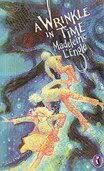
Madeleine L'Engle, A Wrinkle in Time 1962
"It was a dark and stormy night..." ...so begins A Wrinkle in Time, a small and perfectly formed classic of children's fantasy. Or is is science fiction? I was never sure where to place it because this seems to be a perfect blending of genres, and re-reading it thirty-three years later leaves me none the wiser. To say just about anything about the plot and direction of the book would be to spoil it, but within my limited reading of fantasy it falls somewhere in the vicinity of Ray Bradbury's The Halloween Tree and Michael Ende's The Neverending Story, while the science fictional tropes include naïve meddling with space and time, strange and magical aliens, and the evils of telepathic mind control creating an enslaved uniformity. L'Engle extended the very successful format of this novel into a series known as the 'Time Quartet', and garnered herself the distinguished John Newbery Award (for childrens literature) in the process. I hope A Wrinkle in Time continues to delight kids (big and small) everywhere, for years to come, despite being once banned for supposedly advancing religious arguments.
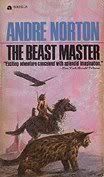
André Norton, The Beast Master 1959
Earth has been rendered uninhabitable in an interplanetary war, and a young Navajo 'Beast Master', Hosteen Storm, arrives on the planet Arzor to start a new life and also track down and kill the settler Brad Quade, to even up a family score. But on Arzor he discovers a secret band of Xiks, the alien enemy that destroyed Earth, and finds he has bigger fish to fry.
I recall liking this book in 1970 but found that I remembered absolutely nothing about it - not the native aliens who happen to 'talk like Injun', the horse-rustling, the marauding giant lizards or the blaster-wielding aliens - but it's a pretty genuine science fiction-western-adventure tale nonetheless with a genuine frontier feel to it, particularly in the build up. Storm's abilities as a Beast Master - someone with a telepathic link to his accompanying meerkats, dune cat, eagle and horse - are only really used as a device to help drive the plot forward at key moments, ie. to help get Storm and friends out of some predictable life-threatening situations. The Beast Master is now quite charming in its innocence; I found the writing itself to be rather less than fluid, being just about competent enough to hold my attention, though I expect the recently published Beast Master's Ark and Beast Master's Circus will have a fair degree more sophistication.
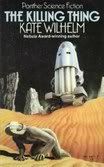
Kate Wilhelm, The Killing Thing 1967
A marauding human race is overrunning every alien species discovered as it builds a capitalist interstellar empire known as the World Group. The story cuts between the predicament of Captain Trace, on a barren planet and on the run from a powerful rampaging robot determined to finish him off, and Trace's own recollections of the events that put him there in the first place. This is a cynical novel, for sure, and Wilhelm's dislike of all aspects of the story is barely concealed. I have no idea what made me pick up this book in 1972, but its imagery has stayed with me for over thirty years and I now wonder if it was the Vietnam War that inspired Wilhelm to write it. If so, in that respect it compares rather favourably with Ursula Le Guin's The Word for World is Forest.